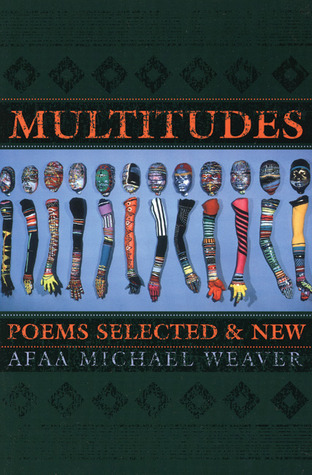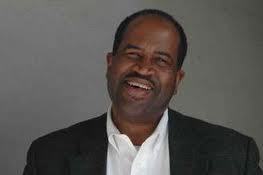
Author

Afaa Michael Weaver was born Michael S. Weaver and grew up in East Baltimore, the son of a beautician and a steelworker. He entered the University of Maryland–College Park at the age of 16 and studied engineering for two years. He then joined the Army Reserves and worked alongside his father at the Bethlehem Steel mill. His firstborn son died at 10 months of complications from Down syndrome. Weaver worked at the mill and, later, a factory for a total of 15 years, writing poetry on coffee breaks, before publishing his first collection, Water Song (1985). It is a time he describes as a literary apprenticeship, during which he founded 7th Son Press and the journal Blind Alleys. He then earned an MA in theater and playwriting from Brown University, concurrent with a BA from Excelsior College. Influenced by Langston Hughes, Gwendolyn Brooks, Michael Harper, and Jay Wright, Weaver writes poetry that engages the intersection of contemporary African American culture, the African American literary tradition, and the technical constraints of contemporary Chinese poetry. “He explores and rethinks questions of identity. Over the years, he has listened to a chorus of other voices, the inflections of the past, as they have come together to shape and enlarge his own distinctive, musical voice,” Ed Hirsch observed of Weaver’s Timber and Prayer (1995). Weaver’s numerous collections of poetry include The Plum Flower Dance: Poems 1985 to 2005 (2007). He edited the anthology These Hands I Know: African-American Writers on Family (2002), and co-edited Gathering Voices (1985) with James Taylor and David Beaudouin. Weaver has been awarded a Pushcart Prize and grants from the National Endowment for the Arts, the Pew Foundation, and the Pennsylvania Council on the Arts. He was a Poet-in-Residence at Bucknell University’s Stadler Center and taught as a Fulbright Fellow at National Taiwan University. Among Weaver’s achievements is his invention of a new poetic form, “The Bop,” which he created during a Cave Canem summer retreat. He has taught at Rutgers University, Cave Canem, and Simmons College, where he co-founded the Zora Neale Hurston Literary Center and launched the International Chinese Poetry Conference. In 1997, to mark his release from the weight of grief that he had carried since the death of his first son, Weaver chose a new name, Afaa, meaning “oracle,” with the help of Nigerian playwright Osonye Tess Onwueme.